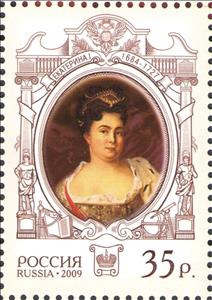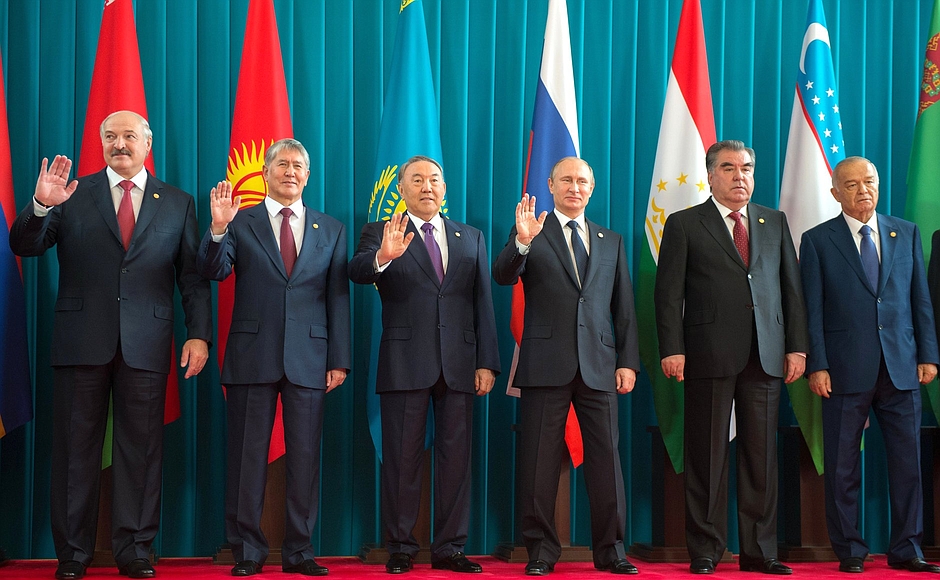Stamp: Portrait of Ekaterina I (Russia 2009)
Portrait of Ekaterina I (Russia 2009)
21 May (Russia ) within release 300th Anniversary of Birth of Ekaterina I Alekseevna goes into circulation Stamp Portrait of Ekaterina I face value 35 Russian ruble
| Stamp Portrait of Ekaterina I in catalogues | |
|---|---|
| Michel: | Mi:RU 1550 |
| WADP Numbering System - WNS: | WAD:RU 024.09 |
Stamp is vertical format.
Designer: G.Baliev.Stamp Portrait of Ekaterina I it reflects the thematic directions:
A head of state (or chief of state) is the public persona that officially represents the national unity and legitimacy of a sovereign state. In some countries, the head of state is a ceremonial figurehead with limited or no executive power, while in others, the head of state is also the head of government. In countries with parliamentary governments, the head of state is typically a ceremonial figurehead that does not actually guide day-to-day government activities and may not be empowered to exercise any kind of secular political authority (e.g., Queen Elizabeth II as Head of the Commonwealth). In countries where the head of state is also the head of government, the president serves as both a public figurehead and the actual highest ranking political leader who oversees the executive branch (e.g., the President of the United States).
Famous People refers to the fame and public attention accorded by the mass media to individuals or groups or, occasionally, animals, but is usually applied to the persons or groups of people (celebrity couples, families, etc.) themselves who receive such a status of fame and attention. Celebrity status is often associated with wealth (commonly referred to as fame and fortune), while fame often provides opportunities to make money.
Commemorations are a type of religious observance in the many Churches of the Anglican Communion, including the Church of England. They are the least significant type of observance, the others being Principal Feasts, Principal Holy Days, Festivals, and Lesser Festivals. Whereas Principal Feasts must be celebrated, it is not obligatory to observe Commemorations. They are always attached to a calendar date, and are not observed if they fall on a Sunday, in Holy Week, or in Easter Week. In Common Worship Commemorations are not provided with collects or indications of liturgical colour. However, they may be celebrated as Lesser Festivals if local pastoral conditions suggest it.
The word emperor (from Latin: imperator, via Old French: empereor)can mean the male ruler of an empire. Empress, the female equivalent, may indicate an emperor's wife (empress consort), mother/grandmother (empress dowager/grand empress dowager), or a woman who rules in her own right and name (empress regnant or suo jure). Emperors are generally recognized to be of the highest monarchic honour and rank, surpassing king. In Europe, the title of Emperor has been used since the Middle Ages, considered in those times equal or almost equal in dignity to that of Pope due to the latter's position as visible head of the Church and spiritual leader of the Catholic part of Western Europe. The emperor of Japan is the only currently reigning monarch whose title is translated into English as "Emperor
The caduceus (☤; /kəˈdjuːʃəs, -siəs/; Latin: cādūceus, from Greek: κηρύκειον kērū́keion "herald's wand, or staff")[b] is the staff carried by Hermes in Greek mythology and consequently by Hermes Trismegistus in Greco-Egyptian mythology. The same staff was borne by other heralds like Iris, the messenger of Hera. The short staff is entwined by two serpents, sometimes surmounted by wings. In Roman iconography, it was depicted being carried in the left hand of Mercury, the messenger of the gods.





